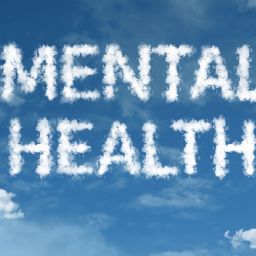Fatigue is a common challenge faced by professionals across various industries. It can significantly impact productivity, creativity, and overall wellbeing.
In this article, we’ll explore the causes of workplace fatigue, its impacts on our overall health and productivity, as well as practical strategies to combat it using nutrition and lifestyle approaches…
Why is Fatigue Such a Problem in the Workplace?
It’s increasingly common to hear workers report feeling lacklustre and burnt out – the problem of fatigue in the UK workplace holds a large health and economic burden:
- It’s costly: it’s estimated that fatigue costs the UK economy up to £40 billion annually due to lost productivity, accounting for around 1.86% of the country’s GDP.
- Absenteeism: workers who experience chronic illness associated with fatigue have an increased rate of absenteeism, having to take time out of work as a result. Plus, there is also an increased rate of presenteeism (which is where employees are present at work however they are not fully functioning); this can also place a large economic burden on companies.
- Increased risk of accidents: fatigue-related incidents in the workplace can be a serious concern, especially across sectors such as construction, healthcare and manufacturing. There is evidence to showcase that fatigued workers are much more likely to be involved in workplace accidents.
- Damaging to mental health: fatigue is closely linked to stress and burnout, which contributes to long-term mental health issues if left unaddressed.
What Causes Workplace Fatigue?
- Long working hours: extended periods of work without adequate breaks can lead to physical and mental exhaustion.
- Lack of sleep: insufficient or poor-quality sleep is one of the leading causes of fatigue. Adults typically need 7-9 hours of sleep per night to function optimally, but a large percentage of workers are not getting nearly this amount.
- Poor nutrition: diets lacking essential nutrients can contribute to low energy levels. High consumption of sugar and caffeine can also cause energy crashes.
- High alcohol intake: consuming high levels of alcohol around work days can have a significant negative impact upon energy and productivity levels.
- Sedentary lifestyle: lack of physical activity can result in decreased energy levels and increased feelings of fatigue.
- Stress and mental health: high stress levels and unaddressed mental health issues such as anxiety and depression can significantly contribute to fatigue.
Diet and Lifestyle Strategies to Combat Workplace Fatigue
- Maintain a balanced diet: when it comes to your energy levels, your blood sugar plays a crucial role in this as well as your overall productivity day-to-day. Consume balanced plates which are high in protein, complex carbohydrates and healthy fats, with a variety of colourful vegetables, too.
- Avoid consuming refined sugars such as confectionary, fizzy drinks, chocolate, pastries and white bread, which can send you on the blood sugar rollercoaster.
- When choosing carbohydrates, opt for the complex varieties such as whole grains, potatoes with skins and legumes. Pairing carbs with protein and fibre will act as a buffer on blood sugar levels, helping to avoid the peaks and troughs which exacerbate feelings of fatigue, thus stabilising a steady level of energy throughout the day.
- Be wary of caffeine: caffeine is a nervous system stimulant, stimulating the adrenal glands to release adrenaline and cortisol, key stress hormones that are involved in the “fight or flight” response. Whilst initially consuming a cup of coffee may provide an initial surge of energy, chronic caffeine consumption can disrupt energy levels due to its impact on a brain chemical called adenosine. Over time, people can develop a caffeine dependency, requiring increased amounts of caffeine just to feel ‘normal’.Much like sugar, caffeine contributes to the blood-sugar rollercoaster, worsening fatigue and disrupting our stress hormones. Caffeine also interferes with the absorption of vitamins and minerals, including essential water-soluble B vitamins which are crucial for energy production. This means that caffeine can exacerbate fatigue, especially in those who are sensitive to its effects.
If you don’t experience negative effects from coffee, limit yourself to no more than two cups a day and avoid drinking it after 2pm (caffeine has a six-hour half-life, meaning it takes around that long for half of it to be metabolized and leave the body, which can lead to restless sleep if consumed too late).
Decaffeinated coffee is another option but be aware that some decaf varieties use chemicals to remove the caffeine which can be taxing on our cellular health long-term. Choose clean decaf brands or consider alternatives like chicory ‘coffee’ or herbal/fruit teas e.g. chamomile, peppermint, lemon and ginger, rooibos, lemon balm.
Remember, caffeine is also found in chocolate, energy drinks, cola, and some herbal teas (such as green tea).
- Incorporate physical activity: moving your body is really key to supporting daily energy levels and it’s important to consider finding the right level of activity for you based on where you currently are on the fatigue spectrum (for example, running a half marathon every day of the week may be too much on the nervous system if you are already burnt out!). Consider how you feel after doing exercise; a good aim for most people would be at least 30 minutes of moderate exercise daily, and activities like walking, cycling, and yoga can help with daily energy levels.
Take short breaks and ensure you stand, stretch and walk around, which is incredibly helpful for the energy slumps that can be associated with prolonged sitting down.
- Reduce stress: to enhance energy it is really important to activate the parasympathetic nervous system, which can be achieved through relaxation methods and techniques such as deep breathing.
A popular deep breathing technique is called box breathing, which involves breathing in for the count of 4 seconds, holding for 4 seconds, exhaling for 4 and holding for another 4 seconds, and then repeating all over again).
Other relaxation strategies include yoga as well as meditation. Apps such as Headspace and Insight Timer offer some great guided meditations that can be followed to help reduce your stress and find new ways to approach challenges faced daily.
- Drink plenty of water: hydration is really key for supporting daily energy levels. It’s recommended we consume 2 litres of fluid daily however this can vary based upon activity levels. Look to consume most of your fluid intake as water, wherever possible.
- Set boundaries: learn how to say no and delegate tasks wherever necessary. Prioritising your workload can help to prevent burnout and maintain sustained and steady energy levels daily.
- Prioritise rest: rest and sleep are such key cornerstones of positive daily energy levels. Many employees avoid taking breaks when they should or overworking themselves, which can sometimes create a sleep and energy debt long-term. To avoid this, ensure you set boundaries in place with your time spent and prioritise 7-9 hours sleep each night. Spread out your holiday dates and days off so that you don’t burn the candle at both ends, so to speak!
Fatigue: Final Thoughts
Managing fatigue is crucial for maintaining productivity, job satisfaction, and overall wellbeing. By prioritising sleep, nutrition, exercise, stress management, and a supportive work environment, professionals can reduce fatigue and enhance their performance professionally.
What strategies have you found effective in combating workplace fatigue? Share your experiences and tips in the comments below. Don’t forget to share this article with colleagues who might benefit from these insights!
Also please note that if you feel you are suffering with a great deal of fatigue, it could be that you require more support, and you may have post-viral fatigue or Chronic Fatigue Syndrome (ME/CFS). If this is the case, it is worth consulting with your GP and also seeking professional support. Check out this book for more insight on this topic: ‘Chronic Fatigue Syndrome: Your Route to Recovery’ by Lauren Windas.
Where you can find Lauren and her clinic: www.laurenwindas.com | www.ardere.com
Chronic Fatigue Book: https://www.ardere.com/product/book-chronic-fatigue-syndrome-your-route-to-recovery/
Lauren’s Instagram: https://www.instagram.com/laurenwindasnutritionist/

















